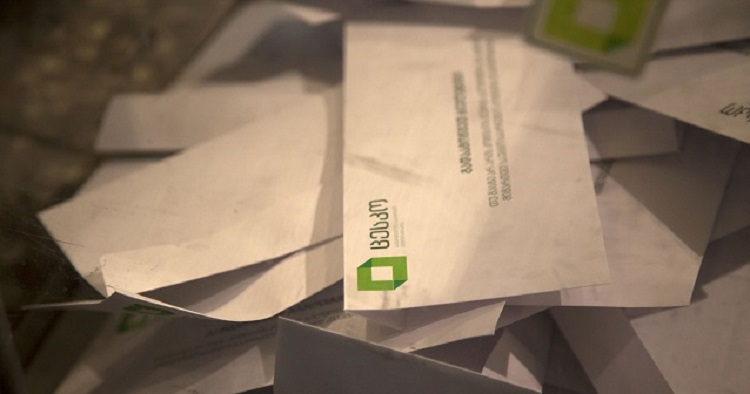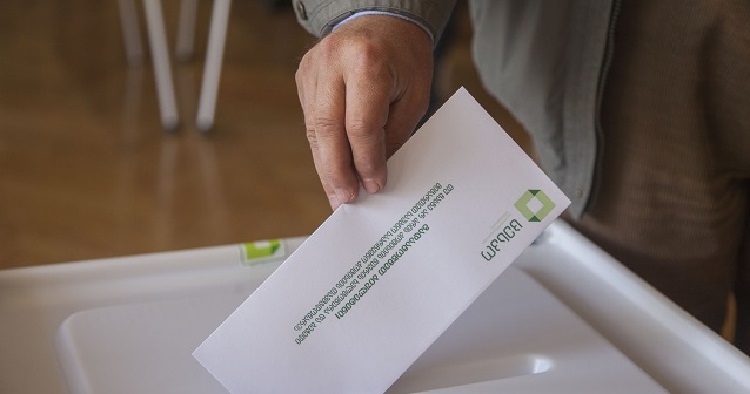OSCE/ODIHR interim report: pre-election environment marked by political, social tensions, economic challenges amid coronavirus pandemic

The ODIHR Limited Election Observation mission opened on September 25, with a 13-member core team in Tbilisi and 27 long-term observers deployed across the country. Photo: Nino Alavidze/Agenda.ge
The OSCE Office for Democratic Institutions and Human Rights (ODIHR) says in its interim report that the pre-election environment in Georgia ‘is marked by political and social tensions, and economic challenges’ amid the ongoing COVID-19 pandemic.
ODIHR also notes that the campaign ‘is prominent mostly in the media and online’, while campaign events ‘are exempt from COVID-19 related restrictions in force with respect to other social activities’.
Many parties reduced door-to-door and in-person campaign activities given widespread COVID-19 related concerns. Most candidates met by ODIHR LEOM did not raise concerns about their ability to campaign freely, also in minority languages, but there were a few instances of electoral violence”, the report reads.
In particular, it refers to the September 29 incident in Marneuli when activists and journalists were injured during a clash between the ruling Georgian Dream and opposition United National Movement parties near a district election commission.
With the notable exception of the response to COVID-19, the campaign has centred on personalities rather than substantive issues. With the lowered threshold for entry into parliament, both established and newly registered parties evaluate their prospects competitively”, the report further says.
It then notes that several opposition parties stated to the ODIHR LEOM that ‘the political environment unduly favours the ruling party and that GD activists have engaged in direct or indirect intimidation of their supporters’.
Several ODIHR LEOM interlocutors have also alleged ‘potential vote-buying, including elements of the government’s COVID-19 social assistance’.
 On October 31 Georgia will hold the last parliamentary elections under a mixed electoral system, with a fully proportional system effective for future elections. Photo: Nino Alavidze/Agenda.ge
On October 31 Georgia will hold the last parliamentary elections under a mixed electoral system, with a fully proportional system effective for future elections. Photo: Nino Alavidze/Agenda.ge
Stating that ‘the diverse media environment is polarised along political lines and business interests’, ODIHR says in its interim report that ‘television continues to serve as the main source of information for the overwhelming majority of the population’.
The report sums up activities of the Central Election Commission as well, which to date 'has complied with all legal deadlines' and has its technical preparations underway.
While stakeholders expressed varying degrees of confidence in the CEC’s professionalism; a number of ODIHR LEOM interlocutors from opposition parties and civil society organisations raised concerns over impartiality of lower-level commissions”, the report says.
It refers to the selection of Precinct Election Commission (PEC) members, saying the first PEC sessions ‘led to political confrontations in some districts’, as 'while most PEC’s chairpersons are non-partisan, all PEC chairs elected from members nominated by parties represent the ruling party”.
Meanwhile, ODIHR says that the State Audit Office (SAO), which is responsible for party and campaign finance oversight and identifies potential violations, has submitted eight administrative offence protocols, mainly for violations committed by small and newer political parties to Tbilisi City court.
SAO has also opened enquiries on more than 750 donors 'to verify the source of questionable donations, many related to the contributors of one political party'.
The ODIHR Limited Election Observation Mission opened on September 25, with a 13-member core team in Tbilisi and 27 long-term observers deployed across the country.
The interim report issued yesterday is based on ODIHR assessments of the election environment in Georgia between September 25 and October 10.
 Tweet
Tweet  Share
Share